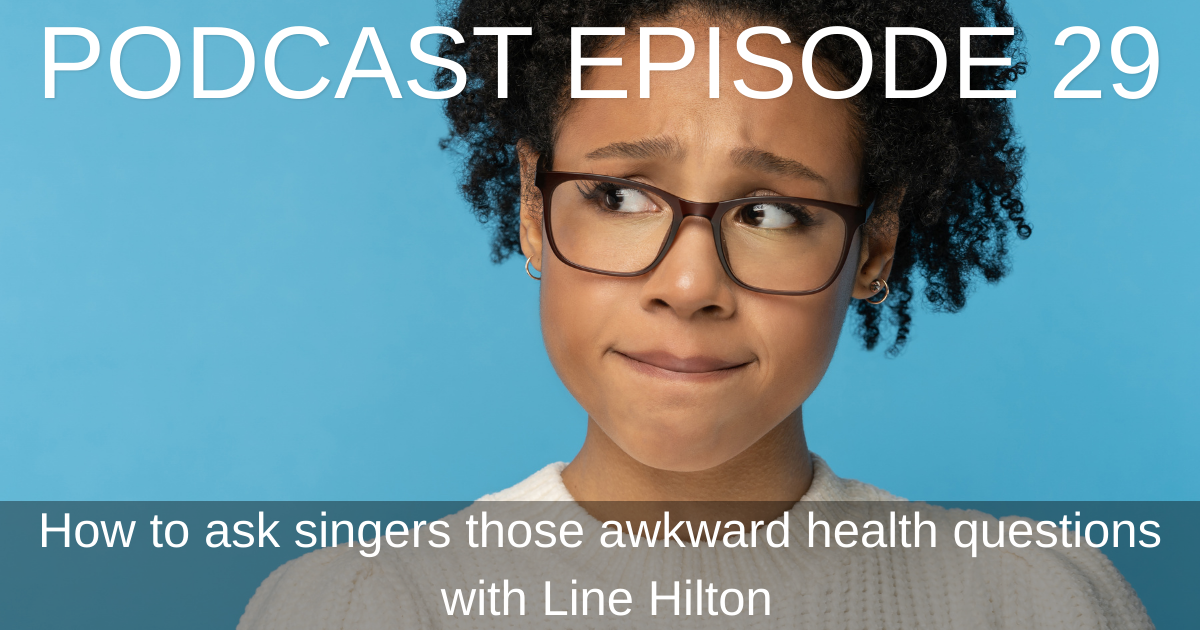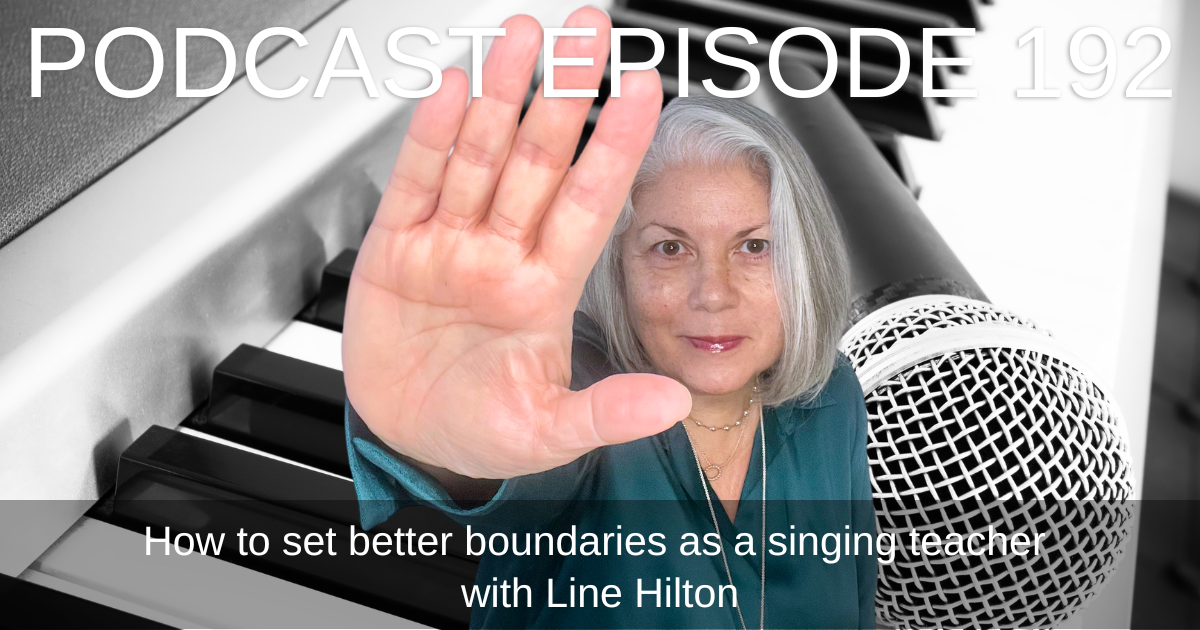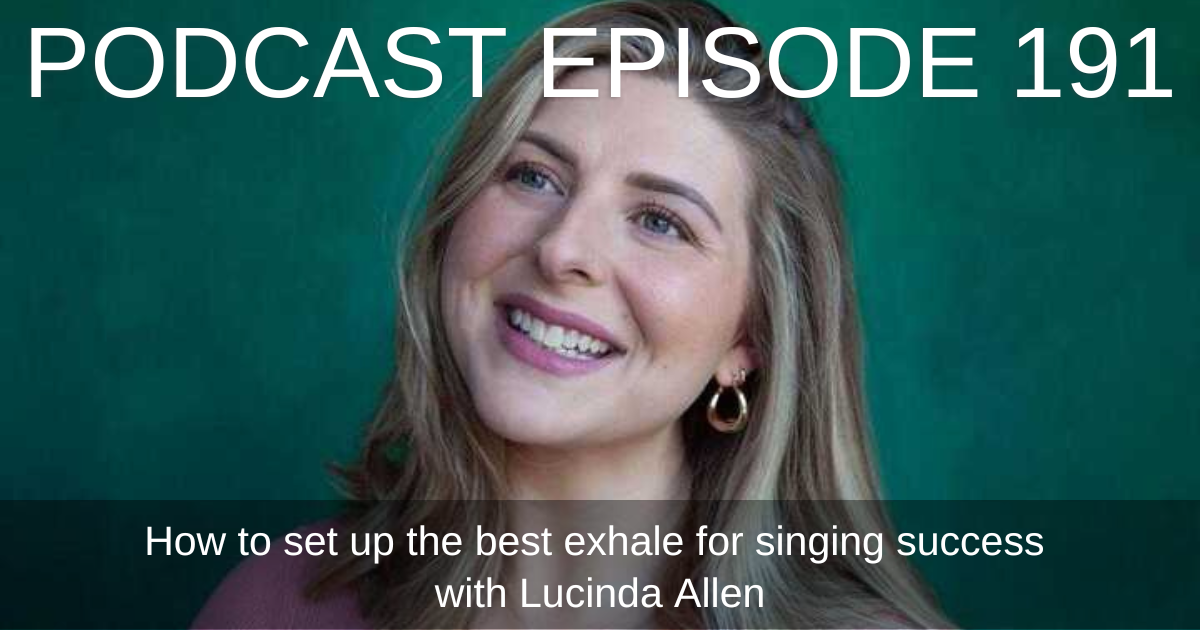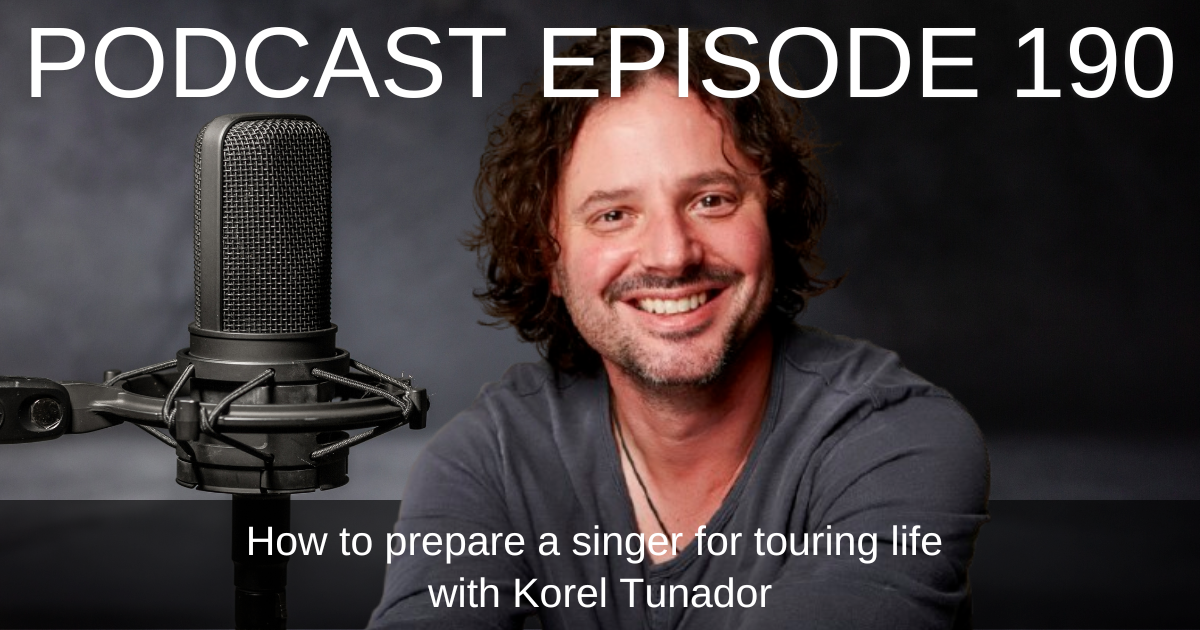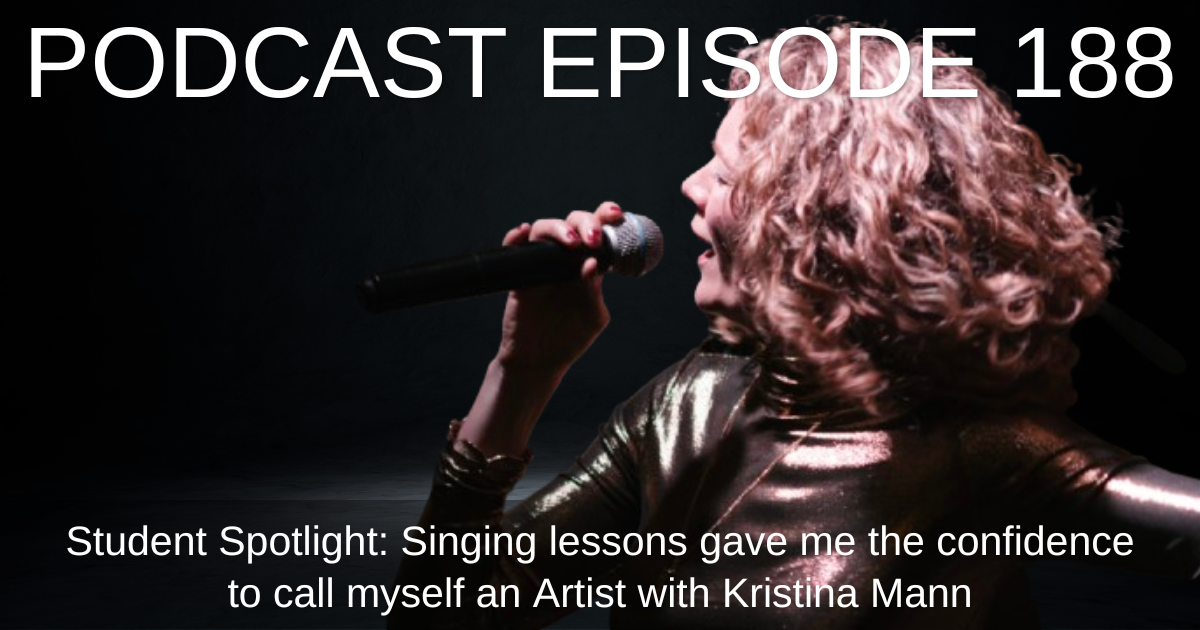This week on Singing Teachers Talk, host Line Hilton will be talking to you about asking those awkward health questions, what questions we need to ask, why we need to ask them, and how we should go about doing it.
KEY TAKEAWAYS
- It’s important to get the background health history of someone’s voice so you know what it’s capable of and how long it might last.
- Remember to be up to date with your GDPR procedures when storing any information about students and avoid having handwritten notes.
- One of the most important things to know is about any previous spinal issues and any injuries that can affect the voice, they should be taken into account.
- Medicines such as steroids can weaken the epithelial. Female oral contraception can affect the singing voice to, so it is worth asking about these specifically.
- Explain why you’re asking about their health history and ask if there is any medical issues or medicines that you should know about. Once this is disclosed then you should ask follow-up questions that can help inform your knowledge of their condition to get a better framework.
- One of Line’s top tips is to create a form to be completed in advance. This will also help with spellings of conditions of medications.
BEST MOMENTS
‘Mitigate the side effects and optimise vocal health’
SHOW LINKS
Vocal Health Education: vocalhealth.co.uk
National Center for Voice and Speech Medications and the voice: ncvs.org/rx_generic_name.php
Jotform: eu.jotform.com
Dropbox: dropbox.com
Laryngeal Endoscopy & Voice Therapy by Sue M Jones: comptonpublishing.co.uk/laryngeal-endoscopy-and-voice-therapy.php
Vocal Health And Pedagogy Ed. by Robert T. Sataloff: amazon.co.uk/Vocal-Health-Pedagogy-Assessment-Treatment/dp/1597568600
Singing Voice Rehabilitation Karen Wicklund: amazon.com/Singing-Voice-Rehabilitation-Speech-Language-Pathologist/dp/143543854X
Link to podcast presenter’s bios
SUBSCRIBE AND NEVER MISS AN EPISODE
EPISODE TRANSCRIPTION
0:06
Hello, and welcome to the Singing Teachers Talk Podcast, where we deliver interviews, discussions and advice around the topics of singing and teaching singing. My name is Line Hilton. I am the founder of BAST training, and also one of the trainers. So in today’s podcast, I’m going to be talking to you about asking those awkward health questions, why we need to and how we can do it effectively. So I’m one of the presenters, mentors and assessors for vocal health education, where they do a variety of different courses such as the vocal health first aid, and the vocal habilitation professional certificate. And one of the things that I’ve noticed as I’ve been observing teachers working with their students, is that a lot of people are struggling to know what questions to ask and how to ask them. They may know that they need to ask these questions, but they find it difficult to ask the maybe the more awkward questions, the ones that feel a little bit more invasive.
So I thought I’d have a chat to you guys about this, because I’m sure that in your practice, regardless of whether you’re doing the local habilitation professional certificate or not, you will still find it very useful to understand that how important it is to get someone’s history, from a medical and health point of view, in terms of what can then be expected of their voice, and then how to go about asking in a way that isn’t awkward or invasive. Now I have a background as a general nurse, and I’m used to working in the health sector and asking these questions. So it’s a lot easier for me, and it hasn’t really been until now that I’ve realised it’s not necessarily that easy for people who’ve not come from that background. You’ll be interested to know that when I first started teaching, I didn’t necessarily focus on the health side. And it wasn’t until I had some experiences where I realised ‘Oh gosh, if I ask these questions before, we wouldn’t have had to wait so long to figure out what the problem was’.
2:30
Now one instance was a student I had who was experiencing a lot of post nasal drip, and that was interfering with her sound. And I was trying to figure out some ways to help her resolve it from a technical point of view. And I was thinking about some medications and maybe sending her off to the ENT to get scoped, but I hadn’t taken a good enough history. So I took her history based on her singing, style and experience and her goals, you know what you wanted to do. But I didn’t really go down the avenue of health and wellbeing or what was going on in her lifestyle and what she was doing outside of singing. And she came running in one day to one of her lessons late, and then she was apologising for running late, because she was at work. And I said oh, what do you do when you’re not singing and she said, I work in a perfume shop. And of course, I’m surprised that around the world didn’t hear the penny clunking as I went ‘oh, no wonder she’s got post nasal drip’, she is obviously having an adverse reaction to being around all these perfume chemicals. And so we ended up having a discussion about having noticed that it’s different when you’re not working there or if you take a break. And so she very easily and quickly came to the conclusion that she needed to find a new part time job. Now that’s one of a couple of examples that I had of where I realised if I had taken a much more extensive history, I would have come to this conclusion and being aware of it a lot earlier.
4:12
So as a result of this experience in a couple of others, I decided to put a much more extensive history form together that I would get from my students before they start having lessons with me. I choose to do this as an external form, which I send off before the student actually arrives, because otherwise it will take way too much time of the first lesson. And I will go through that list and I’ll get a pretty good idea of the things that I think might be impeding vocal workload or health or things that I might want to investigate a little bit further to find out a bit more, such as certain types of medications or medical history. So then when we have this first session, I can then hone in specifically to particular areas of concern, whether that’s vocal workload or health issues that might be impacting the voice, or things that might concern the singer in terms of them being able to sing in a healthy manner. So I asked things around, obviously singing history, whether they’ve had lessons before, what kind of performance experience they’ve had, what kind of settings they perform in, education, any issues that they might already be experiencing from a technical point of view. And then I’ll delve into health and wellbeing, and also lifestyle. So when it comes to health, and this is often the area that people struggle with, there are ways of asking these questions that will help this singer understand why you’re asking them. So if you’re one of those teachers who likes to be accountable for someone’s wellbeing, then it seems quite reasonable that you could say to the student, “I’m going to ask you a few health questions. And the reason why I’m asking these questions is because sometimes medical conditions and the medications that we take will have an impact on our voice, it might cause us to have a reaction or side effect, or maybe increase the difficulty of being able to sing in a healthy and balanced manner. You don’t need to answer all these questions. Of course, I’m not here to diagnose or treat or anything, I’m just here to understand everything about what’s impacting your voice.” Now, when you’re taking medical history, it’s very important to make sure that you understand how to protect data, as well. So in the UK, we have the GDPR regulations. And I highly recommend, if you’re in UK and Europe, that you make sure you’re up to date with all that. And anytime you’re taking someone’s details, name, age, address, any payment details, and then more sensitive details, you need to make sure that you are protected. And that you’re protecting their data as well. I use Jotforms, and then everything’s kept there. Jotforms have, obviously data protection, you have various levels. I also use Dropbox, I upload things up to Dropbox. And I try not to where possible have anything more of handwritten any information. When it comes to lifestyle, I’m asking questions like you know, ‘what do you do workwise?’ you know, a lot of singers have part time jobs or casual jobs. I had one singer coming to me who was about to record an album and she was struggling with her voice, she was finding she was getting very fatigued and not being able to access the high notes and when I investigated further, I discovered that she had a call centre job. So she spent the whole day, eight hours talking. And then she try and go and lay down a track in the evening. And of course, her voice was very fatigued by the time she got there. So I said, obviously I don’t want you to not be earning income while you’re doing this. You need it to pay for the recording, etc. But you will need to take some time off and at least three days before you’re recording so that your voice has time to recover. And the vocal workload isn’t so heavy. And she ended up doing that and was able to record her music the way that she wanted to, and feeling you know, fit and healthy, and able to access all areas of her voice. On a personal level, when I was still gigging, I did a part time job working in a bar. And this was back in the days when people still smoked in pubs. And I remember I had a, I think Friday, Saturday at the bar, and then Sunday, I had a gig and my voice was really shot. I mean, it was so croaky and husky and I really couldn’t get my vocal folds together. And what I realised was that standing at the bar with all this smoke, surrounding me and breathing it for hours on end, was actually impeding my voice significantly. So I had to make sure that when I was performing, I didn’t work in the pub and that made a huge difference. Of course, nowadays not such a problem. In terms of smoking environment, back when you’re working at a especially a busy bar, or pub is very noisy and quite often you’re shouting over quite a lot of noise. That might be, people talking music, etc. And so still got to be a little careful about what you’re doing with your voice when you’re not singing.
9:53
So a few years ago, I did a master’s in performing arts medicine which very nicely married up my medical background and my performing arts background. And of course, my questionnaire has extended. And I look at not just sort of general health things, but I also look at, has someone had an accident or injury of the spine or neck? At any point, do they have any spinal issues such as scoliosis, or they hypermobile? Do they have any kind of chronic illnesses or conditions that might be impeding their skeleton in some way, because what I realised is that, once you have a problem in one part of your skeleton, very likely, at some point, it will end up creeping up as each of the other parts start to compensate. And eventually, you will end up with problems around the shoulders and the neck. And then the larynx is going to be off kilter, out of alignment and that may be contributing to vocal fatigue, and difficulty with accessing range. So as I said earlier, I have a background in medical and health things and so it is a lot easier for me to dig in and ask these questions. But even as a singing teacher, there is no reason why you can’t be asking some of these questions that feel intrusive, but actually, if delivered in a, a particular way, may not seem so intrusive, and may actually give you more respect from the student, because you’re actually thinking about them sort of in a 360 way, more holistic way. So I certainly feel that it’s part of your accountability as a singing teacher, to become comfortable asking these questions so that you can fully understand the implications of someone’s vocal health and workload. We want to know, are there any medical conditions, any prescribed or over the counter medications that they’re taking? Have they had any injuries that may have an impact on their voice? And then also, obviously, all the other things that we’re asking them about how they use their voice on a day to day basis, and when they’re singing, but we’re going to focus in this moment on just the health side. Now, you may not know exactly what some of these medical conditions are all these medications, but there’s no reason why you can’t write them down, ask them to be spelled out, and then say to the student, I’m going to go and do some further research to see if this has any impact on the voice. If there’s any thing that we should know so that we can optimise what’s going on with with you and as you sing, you’re not going to be diagnosing or treating or making any recommendations in from a medical health point of view. But it might be that understanding that somebody has asthma, and they’re taking a steroidal puffer on a constant basis. It’s, you know, just common vocal health knowledge that it is better when you do that, that you rinse your mouth afterwards, or that you use a spacer. And then I also will ask about ‘what time do you take it?’ ‘Can we maybe shift the singing lesson so that it’s not immediately after you’ve taken your puffer?’ Because steroids can weaken the epithelium, especially when you’re on long term, it is just, I’m not saying it’s what happens, it’s just consideration. So I tend to time things around, the singer, being a little bit further away from taking their medications when they’re taking medications that dry their mouth, or dry their respiratory system out. So it’s not that you’re treating them or changing anything, you’re just accommodating what they’re already doing, so that it’s going to reduce the strain on the voice. They may then also want to consider you know that if they need to take their puffer at particular times of the day, how’s that being impacted in terms of when they’re performing? Then you can recommend that they go back to their doctor and make an inquiry and just say, ‘Is it important for me to take that dose just before I go up and perform? Or could I wait till afterwards?’ So you don’t have to necessarily know the answer. But you can then say, ‘you know what, this may be a problem. You should go and have a discussion with your GP to see what the alternatives are.’ Another one for females in particular, not only do we have all these hormonal things going on, but if you’ve got a female who is on oral contraceptive, then progesterone can have an impact on the vocal folds. And so there are plenty of different options for contraceptives. And you might say to the singer, ‘If you’ve noticed a change in your voice, and she started to taking this oral contraceptive, then maybe it’s worth going to your GP and asking if they would consider another type that isn’t so high in progesterone.’ And there is plenty of research out there that supports this. Sometimes I’ll actually give the student a recommendation of reading for the GP, if they’re not sure, because the reality is GPS don’t know the voice probably as much as you do and so they won’t be aware that progesterone has an impact on the vocal folds.
15:34
So when you’re asking about medical history, if you wanted to do it verbally, one way you could say, obviously explain why you’re asking and then ask, ‘Are there any medical conditions or medications prescribed or over the counter that you’re on that you think I should know about?’ So when they tell you some of these things, you want to maybe delve a little bit deeper and ask the what, when, how, who, where, why, kind of questions. So for instance, ‘What are the symptoms?’ ‘When does it occur?’ ‘Does it start around a particular thing?’ ‘Or in particular time of the day?’ ‘How long have you had this for?’ ‘What kind of treatment have you had?’ ‘How did that go?’ ‘Was there any underlying root issue/reason why you had it?’ ‘What changes did you make?’ ‘What treatment did you get?’ ‘How long does it last?’ ‘Are there any triggers?’ ‘What helps medically and non-medically?’ Also ask ‘Who did you see?’ ‘Was the a medical person or somebody who was maybe non-medical?’ ‘How did it impact your voice?’ ‘How does it impact your physicality?’ So you can ask all of these questions around these particular themes to get a better framework. So when I’m asking about someone’s medical history, I will also ask, ‘Is that something they’ve diagnosed themselves or have they been actually diagnosed by a doctor?’ If somebody tells you about a medication you’ve never heard of, the next question really is, ‘Have you noticed any changes in your voice since you’ve taken that medication?’ ‘Have you noticed any changes in your energy level or your physicality, since you’ve taken the medication, how has it impacted your performance and your singing?’
17:36
The most common side effects that we have from medication will be dryness, coughing, maybe increasing mucus, those are mostly the common things in terms of voice and airway. Occasionally, it might actually directly impact the vocal folds causing some kind of swelling, or change in the size and so the singer may find that their range and their vocal tone is impacted. So they might have hoarseness or breathiness that they didn’t have before, they might find their singing is more effortful, or they might find that they have a break where they never used to have one. They might find that their voice gets fatigued more easily. They might even lose parts of their range, or maybe not have as much control over their pitch, they might find that their speaking pitches also affected, maybe it’s dropped if the vocal folds are thicker. These kind of side effects will happen with a whole range of medications. Sometimes they’re hormonal, sometimes they’re treating things like depression, sometimes they’re for respiratory disorders or for other conditions. There’s a whole range of different kinds of side effects that we can have from medication. And I’ve, I think we’re sort of more going to be focused on the ones that might impact the voice, or the person’s energy level and their ability to perform comfortably. Oh another side effect that sometimes happens with certain medications is feeling nauseous, vomiting, reflux, and of course, that’s going to have a huge impact on the voice. In terms of, if any acid gets onto the vocal folds. Changes in hormones, even under natural conditions such as pregnancy, PMS, puberty and menopause will also have an impact on the voice. I can often tell with female singers that I’ve worked with for a long time, where they are in their cycle, because their voice gets heavier and more difficult to get through the range or maybe their range changes or the tone changes or there’s a shift in where their transition occurs. So understanding how hormones will impact the vocal folds will be really important thing for a singing teacher to understand, because you don’t want to be pushing the voice say when a female’s premenstrual because their voices quite vulnerable at that time. So sometimes I will ask a female singer if they’ve noticed changes around their period so that we can plan workload and also what we’re doing in terms of exercises where we’re focusing. I might not do as much in the way of, heavy sort of belting kind of technique during that time, and then wait until the voice has calmed down. And we have to also balance this in if you’re working with a working singer with what they have to do when they’re actually performing. In the sports world, female athletes keep a journal with that’s related to their cycle. And they put everything in like, you know, is that more difficult? Are they more bendy, less bendy? You know, how’s it impacting their energy level? How’s that impacting their results, you know, like speed? So with singers, there’s no reason why you couldn’t suggest that with a female singer who was noticing inconsistency in their voice during the month. And this means that they can plan around their period. And in terms of workload, and when they accept work, and when they don’t.
21:12
If you’re working with a singer who’s got some sort of neurological problems, such as Parkinson’s or MS, then this will have an impact on their voice eventually. Having said that, singing is actually a great way to help stave off that impact, and keep the voice as strong as possible for a lot longer. So I highly encourage people who are experiencing Parkinson’s or MS to do singing just as a way of keeping their voice as strong as possible for as long as possible. If you’ve got a student who’s actually been to an ENT, or speech therapist for any reason in the past, I always ask ‘What was the diagnosis?’ ‘What was the treatment?’ ‘Did they have any specific discharge instructions?’ And in particular, ‘Is it okay to go back to singing now? Given I’m talking in the era of COVID-19, it’s very relevant to find out if anyone’s suffered from COVID and what happened to their voice. ‘How they are now?’ ‘Do they think they might have long COVID?’ ‘Have they had any ongoing issues? Because quite a lot of, there’s quite a lot of coughing during COVID, and then afterwards, a quite a lot of deficit in the respiratory area. So we want to know, what are we working with here? And what’s helping what’s hindering? It may mean that you just take things a little bit slower and you also help encourage the singer to be a bit more patient with themselves. Of course, it’s also important to think about mental health. Is there anything in that person’s history that may be problematic? So for instance, if someone’s got OCD, does that mean they’re over doing practice, for instance, or maybe they’re on medications for depression or anxiety, so that might impact their mood and their behaviour, it might also have an impact on their voice. Some of the especially the antidepressants can cause dry cough, it’s quite easy now to go on to Google and find out what the side effects of various medications are. And so if you’re not sure, then just hop onto Google, put in the medication name and the side effects and see if there’s anything that might be causing any change in the voice and the vocal health. Now, you’re not going to ask that person to then stop taking that medication, but you’re going to make them aware of it. And then give them some strategies to help them mitigate whatever those side effects are. That might be steaming or nebulizer, drinking more fluids. Like I said, with the steroid puffers, making sure that they’re rinsing their mouth or using the spacer to take the medication. So we’re just trying to mitigate the side effects and optimise vocal health as much as possible.
24:03
So my top tips for asking those awkward health questions. First of all, create a form. Give them the form to fill in before they come for the lesson. That way, you don’t have to ask the question in person. Also, you don’t have to necessarily get spellings of everything. You can look it all up before they actually have their lesson. And then just focus on the things that you think you feel comfortable with. You might also find some resources to help somebody understand how their various conditions and medications might impact their voice. And then at least you’re covering those issues in your students. If you’re wanting to know what to ask in the list, you don’t have to be as deep and in depth as say a medical person might but you can get some advice through ‘Singing Voice Rehabilitation: A Guide for the Voice Teacher and Speech-Language Pathologist’ by Karen Wicklund. I’ll make sure these are listed in the notes that accompany the podcast. Also, Robert T. Sataloff’s, ‘Vocal Health and Pedagogy: Advanced Assessment and Treatment’ has in the appendix, a few examples of history forms, for taking history for voice. And you might also find ‘Laryngeal Endoscopy and Voice Therapy: A Clinical Guide’ by Sue M. Jones useful as well in figuring out what the kind of medical and health issues are that you want to know about that might impact the singer and their voice.
So my second tip, if you don’t have a form is just ask a generic question. Explain first, why it’s important for you to know their medical history in terms of how it might impact their voice, and then just say, ‘Are there any medical conditions, medications prescribed or over the counter that you feel I should know about?’
26:17
And three, understand that the student actually will appreciate the fact that you’re thinking about them from a holistic point of view, making connections that maybe they hadn’t, and helping them to understand how they can support their vocal health, in terms of what they’re eating, drinking, how they’re behaving outside of singing. So the more education you have, the more education they have, the easier it is for you to ensure that they’re singing in a healthy manner, and that they’re able to go out and just enjoy singing. So I hope what I’ve spoken about will encourage you to feel more confident to step up and ask these more awkward health questions without worrying too much about the fact that you’re going to be prying. I think it’s really part of your responsibility as a singing teacher, if I’m honest. But if you’re wanting to have more support, then check out what Vocal Health Education are doing and get more educated, or go and hang out at a voice clinic or go to the British Voice Association, workshops and seminars or if you live in another country, then look around to see what kind of education workshops are available to non-medical people to help them understand the implication of health and wellbeing and the voice.
So if you have anything you think you’d like to hear more of on the Singing Teachers Talk podcast, don’t hesitate to drop us a message, either through social media or our website, or drop us an email, info@basttraining.com and let us know. If you have any specific questions to me, then drop me an email, or get in contact through social media and I will make sure that I create a podcast that answers your questions. In the meantime, if you haven’t already joined the Facebook group, because there’s lots of wonderful singing teachers in there who just love to support and help each other. And they’re from all over the world. Some of them have done the BAST course, some haven’t. But it’s a wonderful community that there’s always going to be someone in there that can help answer your questions. So in the meantime, I hope to see you somewhere in the community, and all the best with your singing teaching.
28:58
Dear fellow curious voice nerd, Have you got your ticket to our next event yet? Well head over to www.basttraining.com/store and we’ll save your seat. That’s www.basttraining.com/store. Don’t worry, you haven’t totally missed out on our past events. A recording is waiting for you there too. You probably want to sign up to our mailing list though, just to make sure you never miss another cordial invitation. So follow the link in our podcast description to join. See you at the next one!
